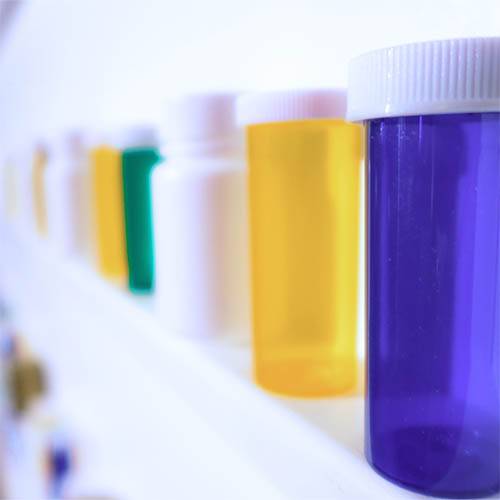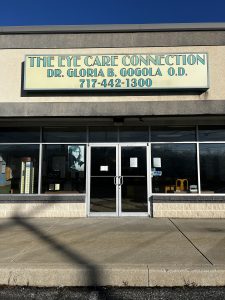Dry Eye Center of Lancaster with Dr. Jon Andrews in Lancaster PA
Our mission is to evaluate and manage any type of ocular surface disease that affects vision and the comfort of our patient’s eyes.
Our dry eye clinic is dedicated to treating just dry eye disease and types of ocular surface disease.
As a tertiary clinic or a referral-based clinic, physicians and doctors who have unsuccessfully tried to treat their severe dry eye patients on their own refer their patients to us for our expertise and dry eye technology.
From preoperative cataract patients who suffer from extreme dryness to chronic contact lens sufferers who can’t find relief from either medicines or other dry treatments in the past, our practice offers the latest and most effective treatments. For example, we fit medically necessary scleral lenses for extreme dry eye cases. Scleral lenses brought relief to patients who failed with medicated eye drops, LipiFlow treatments, or autologous serum. When one’s eyes can’t respond to a specific treatment, the eye may have become so dry that nothing else works.
Our dry eye center treats every kind of dry eye patient — not just those with a blocked tear duct. Poor tear development and even certain eye diseases like Sjogren's, rheumatoid arthritis, or lupus require a more rigorous treatment that our practice provides.
Our technology includes adenovirus detector called AdenoPlus, tear osmolarity testing from TearLab, a corneal topographer, OCT, and more.
If you need a dry eye consultation in Lancaster, contact our office today.
For practitioners & referring doctors, we also provide SICCA Ocular staining scores upon request.


What is Dry Eye Syndrome?
Dry Eye Syndrome, or DES, is a condition caused by a lack of naturally producing tears. Tears are an essential aspect of eye health because they lubricate the surface of the eyes, keeping them moist and comfortable. When the body is unable to produce an adequate amount of tears, the eyes can begin to dry out, leading to itchy, red, and painful eyes.
At Optometric Associates, we are leaders in treatments for Dry Eye Syndrome patients in Lancaster, Pennsylvania. If you or a loved one suffers from DES, speak with Dr. Jonathan Andrews and schedule a consultation to learn how we can help.
Who Is at Risk for Developing Dry Eye Syndrome?
Like other diseases and eye conditions, there are some people who are more susceptible to developing DES. Age, gender, medical conditions, even the environment can contribute to sensitivity to dry eyes.



Treatment for Dry Eye Syndrome
Dr. Jonathan Andrews treats patients from all over Lancaster who have Dry Eye. Our staff has the experience and knowledge needed to help give you relief from DES symptoms and improve your quality of life.
Depending on your specific case, we may recommend artificial tears or lubricant eye drops to produce tears to moisten and make your eyes feel more comfortable. Prescription drops can help stimulate tear production and, in some cases, steroids can provide significant short-term relief.
For patients with more severe DES, the doctor may suggest the use of punctal plugs. These tiny devices are placed inside the tear duct to block tears from draining. As the natural moisture is prevented from leaking out, it remains in the eye and coats it properly, keeping it lubricated and comfortable.
Scleral lenses can provide effective relief as well. These are custom-designed rigid contact lenses with a large diameter that cover the entire sclera (the white part of the eye) without touching the cornea. Scleral lenses contain a tiny pool of water, providing constant moisture to dry eyes.
Medications and Dry Eye
All medications include warnings of possible side effects which some patients may experience. There are certain categories of medications that are known to decrease natural tear production, such as:
- Antidepressants
- Antihistamines
- Anxiety medications
- Birth control pills
- Blood pressure medication
- Decongestants
If you are taking any of these medications and feeling any signs of Dry Eye, speak with Dr. Jonathan Andrews about some alternative medications or treatments to alleviate your symptoms
Testimonial
I had my first visit with Dr. Jonathan Andrews and his staff on 12/19/2019. I found the staff to be personable and professional. The facilities are modern and compare favorably with my most recent experiences in Massachusetts and New Hampshire (where I’ve lived for the past 22 years).
Dr. Andrews was engaging, respectful and interested in my engineering background as well as myself in general. I selected this practice because of their specialty in Dry Eye treatment. My expectation is that this practice will fully meet all of my eye care needs in a competent, professional and caring manner. Good job Optometric Associates!

